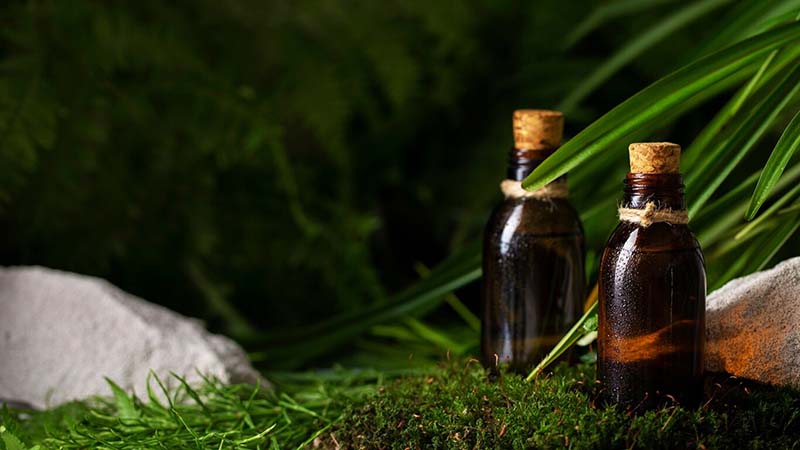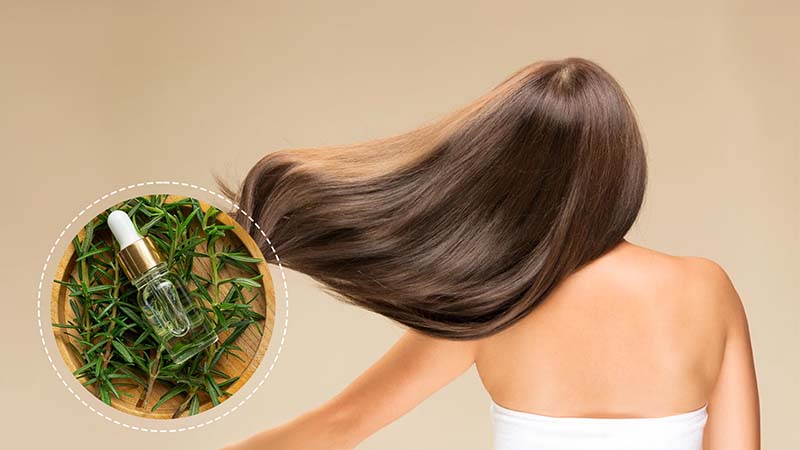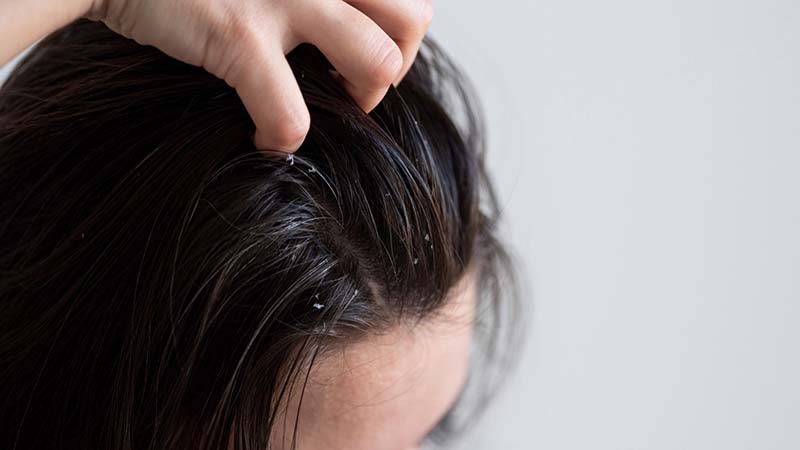Beauty Blog
Is Rosemary Water Good for Your Hair? Quick Overview
Recently gaining traction on social media platforms like TikTok and Instagram, rosemary water is praised for its potential to rejuvenate hair follicles and promote thick, healthy hair growth.
This article explores the truth behind the question, ‘Is rosemary water good for your hair?’ by examining its benefits and practical uses, and determining if it can truly unlock the secret to long, luxurious hair.
Is Rosemary Water Good for Your Hair?
Rosemary water boasts several benefits that contribute to a healthy scalp and hair follicles, potentially promoting hair growth. It is renowned for its anti-inflammatory and antimicrobial properties, which can alleviate scalp conditions such as dandruff and psoriasis.
William Gaunitz, a certified trichologist and founder of Advanced Trichology, points out that rosemary can enhance hair growth by acting as a cleanser and antiseptic for the scalp. “When individuals face inflammation from excess oil and microorganisms, including parasites, fungi, and bacteria, rosemary water can help cleanse the scalp and eliminate some of these inflammatory microorganisms,” he explains.
Supporting this, a 2015 randomized controlled trial highlighted that rosemary oil could match the effectiveness of minoxidil (the active component in Rogaine) in fostering hair growth over a six-month period.
Note: For those exploring natural remedies for hair care, integrating rosemary water into your routine could be beneficial. It’s a gentle, natural option that not only supports hair health but can also improve overall scalp condition.

3 Advantages of Rosemary Water for Hair
Rosemary water is gaining popularity as a natural solution for various hair issues. It harbors properties that not only boost hair growth but also enhance hair texture. Here are three significant benefits of incorporating rosemary water into your hair care routine:
Experience Silky, Smooth Hair with Rosemary Water
Rosemary water significantly improves the texture of your hair, rendering it smoother and easier to manage. The essential nutrients in rosemary coat the hair follicles, effectively reducing frizz and enhancing natural luster. A regular rinse with rosemary water post-shampoo can make your hair noticeably softer and shinier.

Combat Dandruff Naturally with Rosemary Water
Thanks to its antifungal and anti-inflammatory properties, rosemary water is an excellent choice for tackling dandruff. It helps maintain a healthy scalp by minimizing the yeast responsible for dandruff and soothing the irritation and itchiness that often accompany flaking.
Accelerate Hair Growth Naturally with Rosemary Water
Rosemary water promotes blood circulation to the scalp, which is vital for nourishing the hair follicles and encouraging quicker and healthier hair growth. Research indicates that rosemary oil, used in making rosemary water, can match the efficacy of minoxidil, a widely used hair growth treatment, in combating hair loss.

Effective Ways to Use Rosemary Water for Hair Care
Rosemary water can be applied to your hair in several effective ways to maximize its benefits:
- Spray Application For a quick and easy application, keep your rosemary water in a spray bottle. Spritz it directly onto dry hair, then use a brush to gently distribute the water from the roots to the ends. This method is great for a refreshing boost and can help manage frizz throughout the day.
- Post-Shampoo Treatment Another effective way to use rosemary water is to apply it to freshly shampooed, still-wet hair. After showering, simply pour rosemary water over your hair, then comb through and proceed with your usual drying routine. This method helps the scalp and hair absorb all the herbal benefits right after cleansing.
- Deep Hydration Method For deep hydration, apply a generous amount of rosemary water to your hair and let it sit for several minutes. This soak allows the nutrients to penetrate deeply into the hair strands and scalp. After the soak, rinse your hair and dry as usual. To seal in the moisture and add an extra layer of protection, follow up with your favorite hair oil during styling.
Drawbacks of Rosemary Water Usage for Hair
While rosemary water is generally safe and effective for most people, there are some potential drawbacks to be aware of:
- Contact Dermatitis: Some individuals might experience contact dermatitis, characterized by skin redness or irritation, after using rosemary water. If these symptoms occur, it’s important to discontinue use immediately and consult a healthcare provider to address the reaction.
- Allergy or Hypersensitivity: People with known allergies or hypersensitivity to rosemary or related plants in the Lamiaceae or Labiatae family, which includes mint, should avoid using rosemary water. Reactions can be severe and warrant caution.
- Concerns for Pregnant or Breastfeeding Individuals: Rosemary is known for its potential hormone-altering activity and has not been extensively tested on pregnant or breastfeeding individuals. Due to the lack of comprehensive studies and possible risks, it is advised to avoid rosemary water during pregnancy and while breastfeeding.
- Possible Hair Darkening: Some users have reported that their hair darkened after using rosemary water, which could be due to the natural pigments in rosemary. Those with lighter hair colors or concerns about hair staining should consider using a less concentrated rosemary infusion or refraining from using rosemary water altogether.
Note: Always conduct a patch test before incorporating new herbal treatments into your regimen, especially if you have sensitive skin or allergies. This can help prevent unexpected adverse reactions.

Proper Instructions for Mixing Rosemary Water
Creating your own rosemary water is a straightforward process that requires minimal ingredients and effort. Here’s how to make it:
Ingredients:
- 3 cups of water
- 2 sprigs of fresh rosemary
Directions:
- Boil the Water: Start by bringing all 3 cups of water to a boil in a medium-sized pot.
- Add Rosemary: Once the water is boiling, add the two sprigs of fresh rosemary. This will allow the essential oils and fragrances to release into the water, maximizing the benefits for your hair.
- Steep and Cool: Remove the pot from the heat and cover it with a lid. Let the rosemary steep in the water until it cools completely. This slow cooling process helps to infuse the water thoroughly with the rosemary’s herbal properties.
- Store Properly: After the water has cooled, strain out the rosemary sprigs and transfer the rosemary water to a clean jar or spray bottle for easy application. You can store your homemade rosemary water in the refrigerator for up to 2 weeks.
Conclusion
In exploring the various uses and benefits of rosemary water for hair care, we’ve uncovered how this simple, natural remedy can transform your hair health, promoting growth, improving texture, and addressing scalp concerns.
Whether you’re battling dandruff, seeking lusher locks, or just aiming to enhance the natural beauty of your hair, “Is rosemary water good for your hair?” Absolutely, as rosemary water offers a versatile and effective solution.
Please visit WingServices regularly to read useful information!.
